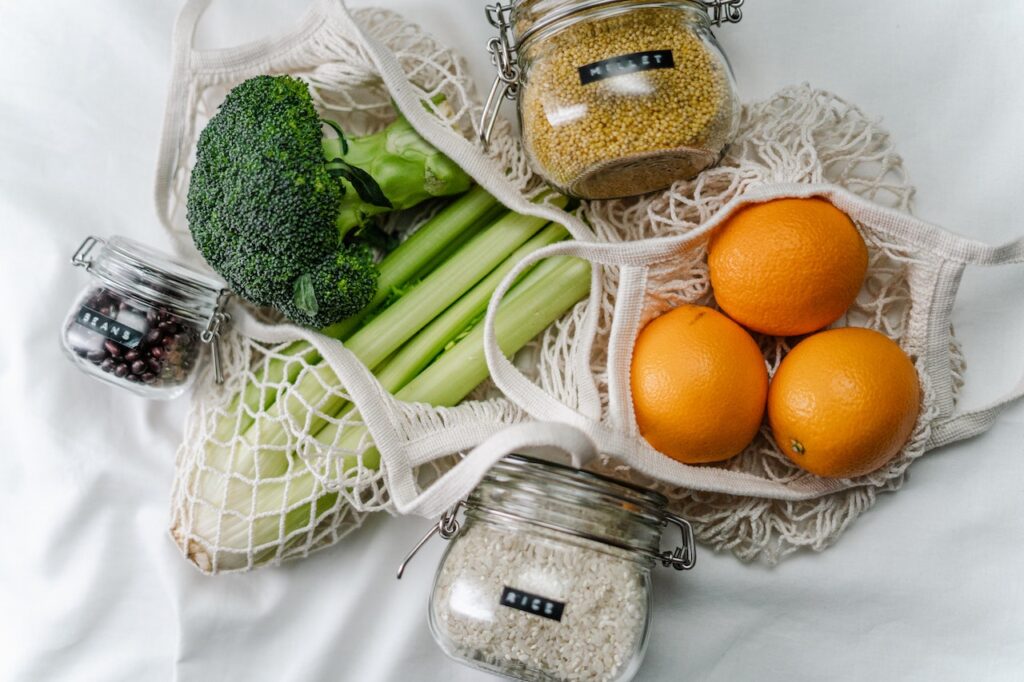
In this article, we explore ten sustainable substitutes that empower individuals and businesses to diminish their reliance on single-use plastics. From reusable shopping bags and stainless steel straws to compostable tableware and cloth diapers, these alternatives not only mitigate plastic pollution but also promote a greener and more sustainable way of living. Discover how making small changes in your daily life can contribute to a cleaner and healthier future for our planet.
Reusable Shopping Bags:
Reusable shopping bags are a simple yet effective way to reduce plastic waste. Made from sturdy cloth, jute, or other sustainable materials, these bags are designed to withstand multiple uses. By carrying your own reusable shopping bags, you can help eliminate the need for disposable plastic bags at grocery stores and other retailers, reducing plastic pollution and conserving valuable resources.
Stainless Steel or Glass Straws:
Disposable plastic straws are a major contributor to plastic pollution, particularly in oceans. Stainless steel or glass straws offer a durable and eco-friendly alternative. They can be used countless times and are easy to clean. By switching to reusable straws, you can enjoy your beverages without harming the environment.
Reusable Water Bottles:
Single-use plastic water bottles are a significant source of plastic waste. Reusable water bottles, often made from stainless steel, glass, or BPA-free plastic, are a sustainable choice. They not only help reduce plastic pollution but also encourage hydration while on the go. With a reusable water bottle, you can refill it at water stations and fountains, saving money and resources in the long run.
Beeswax Wraps:
Beeswax wraps are a fantastic alternative to plastic wrap and aluminum foil for storing food. These wraps are made from organic cotton infused with beeswax, resin, and jojoba oil, creating a pliable and reusable covering. They can be molded to seal bowls or wrap around food items, keeping them fresh. Beeswax wraps are biodegradable and help minimize single-use plastic waste in the kitchen.
Reusable Food Containers:
Instead of disposable plastic containers or bags, consider using reusable food containers made from glass or stainless steel. These containers are ideal for storing leftovers, meal prep, or packing lunches. They are easy to clean, durable, and can last for years, reducing the need for disposable plastic options. By choosing reusable food containers, you’ll contribute to a more sustainable and eco-friendly kitchen.
Cloth Napkins:
Cloth napkins offer an elegant and sustainable alternative to disposable paper napkins. They come in various colors, patterns, and sizes, making them suitable for everyday meals and special occasions. Cloth napkins can be washed and reused, reducing the environmental impact associated with paper production and disposal. By incorporating cloth napkins into your dining routine, you not only reduce waste but also add a touch of eco-conscious elegance to your table settings.
Metal or Bamboo Cutlery:
Disposable plastic cutlery is a common contributor to single-use plastic waste, especially in takeout and fast-food settings. Reusable metal or bamboo cutlery sets are lightweight, portable, and eco-friendly options. Keep a set in your bag or car so that you can easily say no to plastic utensils when dining out. These alternatives are durable, easy to clean, and can help minimize the plastic waste generated during meals on the go.
Compostable Plates and Utensils:
When the convenience of disposable plates, cups, and utensils is necessary, opt for compostable alternatives. These items are typically made from materials like cornstarch, sugarcane, or bamboo, and they break down naturally in composting facilities, reducing landfill waste. Compostable tableware offers a greener option for picnics, parties, and events while minimizing the environmental impact of disposable items.
Cotton Produce Bags:
Plastic produce bags are often used for packaging fruits and vegetables at grocery stores, contributing to plastic pollution. Cotton produce bags provide a reusable and eco-friendly solution. They are lightweight, breathable, and washable, making them ideal for carrying fresh produce. By using cotton produce bags, you can reduce the consumption of disposable plastic bags while keeping your fruits and vegetables fresh.
Cloth Diapers:
For parents looking to reduce their environmental footprint, cloth diapers are a sustainable alternative to disposable ones. Cloth diapers come in a variety of styles and materials, including organic cotton and bamboo. While they require a bit more effort in terms of washing, they can be reused for multiple children or repurposed for cleaning rags, making them a cost-effective and eco-friendly choice for diapering your little ones. Cloth diapers significantly reduce the volume of disposable diapers that end up in landfills, contributing to a more sustainable future.